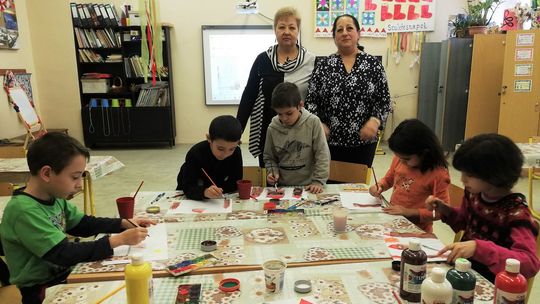The Trust for Social Alternative Foundation in Bulgaria is funding the “Young Roma Educators” program. According to the program director, Evgenia Volen, Roma children, like all children, have a need from a young age to recognize their potential in a significant adult who serves as a role model. They want to be accepted as they are, and to see examples from their own community that they can become meaningful and economically independent people in the place where they live. She believes that teachers who come from the local community are part of the environment that can engage children in learning.
- Детски учители от ромски произход показват нов ролеви модел за младите хора от уязвимите общности. In: BTA. 17.03.2023. https://www.bta.bg/bg/news/bulgaria/425750-detski-uchiteli-ot-romski-proizhod-pokazvat-nov-rolevi-model-za-mladite-hora-ot-


















